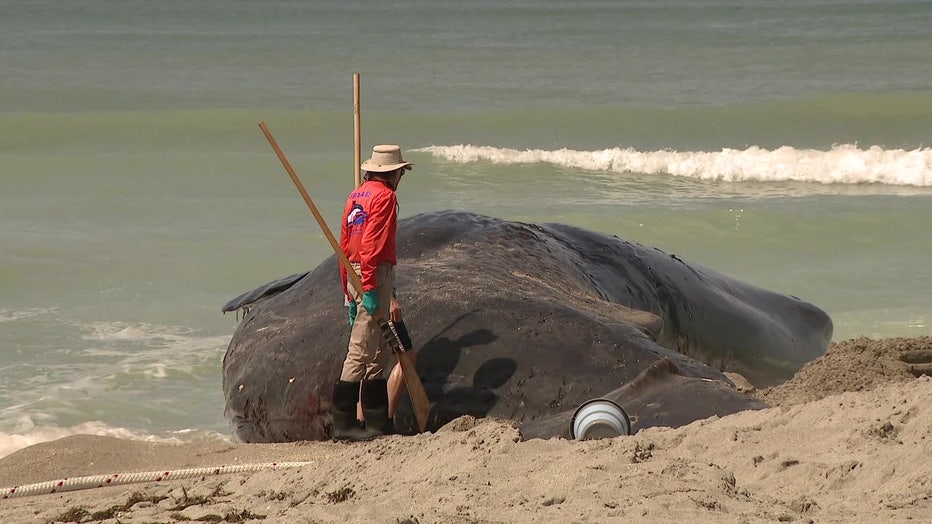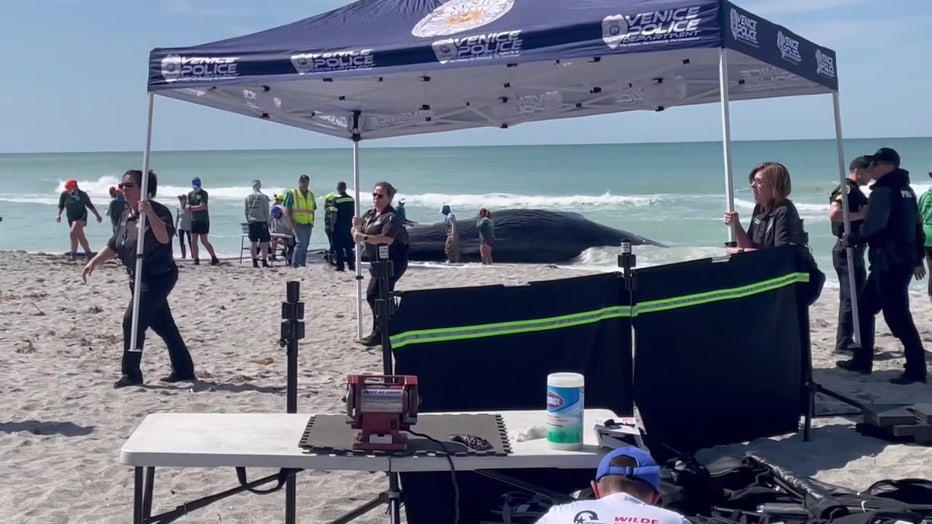Beached whale in Venice towed out to sea following necropsy
Beached whale carcass towed out to sea
Marine biologists were back on Service Club Park Beach in Venice on Tuesday completing a necropsy, or animal autopsy, on a whale that died after stranding itself about 150 yards offshore on Sunday morning.
VENICE, Fla. - A whale that beached itself in Venice was towed out to sea Tuesday.
Sea Tow Venice worked in tandem from the shore and the surf to move the carcass 15 miles offshore.
Owner Craig Marcum and his crew worked to get lines on the remains of the 70,000 pound male sperm whale.
An excavator pushed as boats pulled, cheers could be heard as the whale’s remains were brought back into the water.
A necropsy was performed on Tuesday, but it could take weeks to get the results back.
PREVIOUS: Sperm whale beached off coast of Venice to be euthanized if it survives the night, FWC says
"We are all exhausted. It’s been a long, hard few days, but we also have an amazing team out here," said Gretchen Lovewell with Mote Marine Laboratory.

A 44-foot whale died off the coast of Venice after stranding itself.
READ: Whale that vanished from Atlantic over 200 years ago spotted off Massachusetts: 'Shouldn't exist'
A no swim advisory was expanded to the South Jetty, Venice Beach, Service Club Park, Sharky’s on the Pier and Caspersen Beaches due to body fluids and blood from the whale.
The City of Venice will work with state partners to assess water conditions and safety.
As that occurred, researchers continue to investigate the whale’s death.
And said nothing appeared to stick out, which would present a cause of death.

Scientists performed a necropsy on the whale Monday afternoon and Tuesday morning.
"We did not find any major smoking guns , there were some incidental pieces of plastic, but nothing that caused any obstruction, so we don’t have a solid answer yet. We may never, or we may in a few months," said Lovewell.
SIGN UP: Click here to sign up for the FOX 13 daily newsletter
Answers, if any, could take time but will shed light on these creatures which few encounter.
"It’ll be weeks to months till we get our final answers. And even after all that’s done, we may really never know what brought this animal to the beach, but it gives us an amazing opportunity to learn from this animal and more about these incredible species," said Lovewell.

